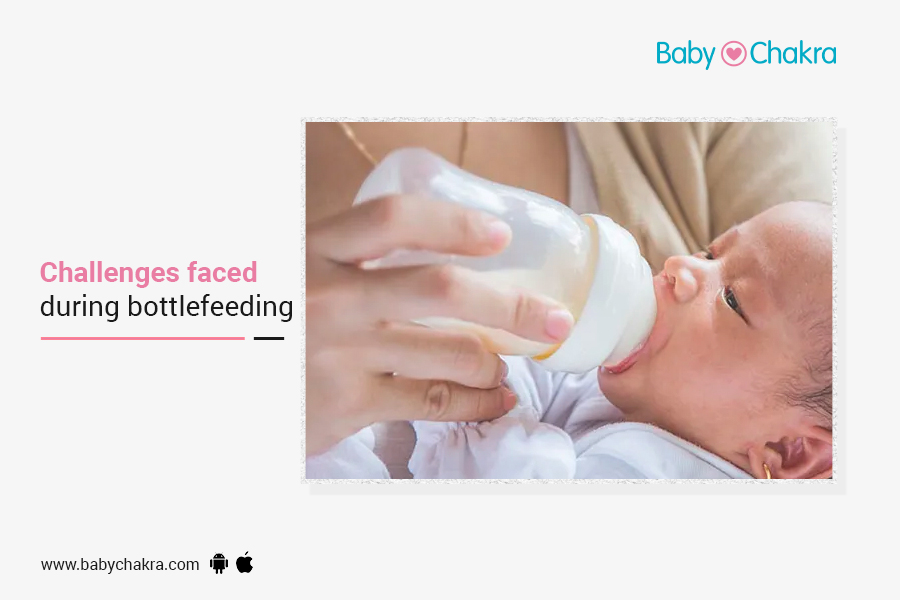
Challenges Faced During Bottle-Feeding
18 Jan 2023 | 3 min Read
Dr Jagriti Shivam Sharma
Author | 1 Articles
The time you think you have finally mastered the art of breastfeeding, it’s already time to introduce bottle feeding to your baby. Just like breastfeeding, bottle feeding is also a task for new moms. During bottle-feeding, a lot of times babies tend to refuse the bottle, get cranky and turn their heads away, spit out the milk, start crying, cough, etc.
Some common signs that your baby’s show when they do not want to bottle feed are:
· They start crying when the bottle is introduced to them
· They turn their head away
· They start throwing up the milk
· They fall asleep when being feed
· They refrain from opening their mouth for feeding
· They start coughing and spit the milk out
· They take in milk too fast or too slow
· They suck the bottle a little and leave the rest, leading to inadequate or insufficient feeding.
The transition from breastfeeding to bottle-feeding is always hard for every mom. These signs of refusal generally come up when the baby is new to bottle-feeding or due to other reasons like:
· Misinterpreting your baby’s hunger is a common reason for refusing to feed, be it breastfeeding, or bottle-feeding. Sucking onto objects, toys or a thumb doesn’t always mean that your baby is hungry.
· Calculating the amount of baby formula to feed as per your baby’s growth is also very important. Parents tend to make this mistake and try overfeeding their baby leading to the baby refusing the feeding bottle.
· Another common reason for refusing bottle feeding is when the baby is distracted or tired. When the babies are distracted, tired, or haven’t slept enough, they tend to cry, get cranky, fussy, and refuse to feed.
· Feeding bottles that are tightly screwed make feeding difficult for the baby. In such a situation, the baby has to try harder to suck the milk making them tired easily and fall asleep.
· Night feeding post 6 months of age can also lead to the baby’s refusing to feed. For newborns, feeding is a way to fall asleep but after a particular age the baby might not need that support to fall asleep and if you continue feeding them at night, they might refuse it.
· Bottle-feeding aversion can also lead to the baby’s refusing to feed. It happens when the baby develops an allergy to baby formula or milk intolerance.
These bottle-feeding problems can be overcome by following bottle feeding tips or by consulting your lactation expert to advise you on a better way to comfortably bottle feed your baby.
If you like the article, do rate us too on the google app store by using this link
A


Related Topics for you
Suggestions offered by doctors on BabyChakra are of advisory nature i.e., for educational and informational purposes only. Content posted on, created for, or compiled by BabyChakra is not intended or designed to replace your doctor's independent judgment about any symptom, condition, or the appropriateness or risks of a procedure or treatment for a given person.
